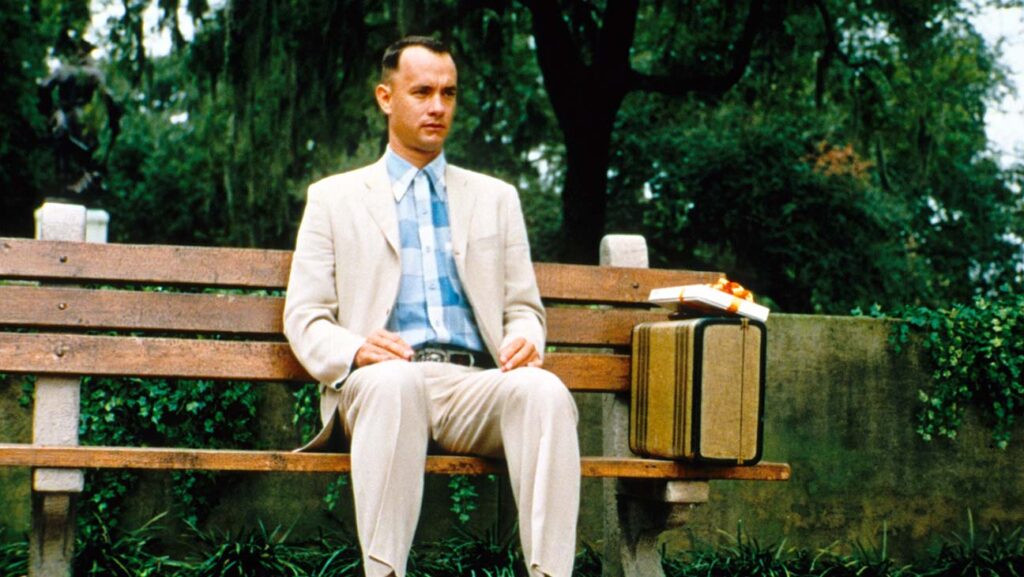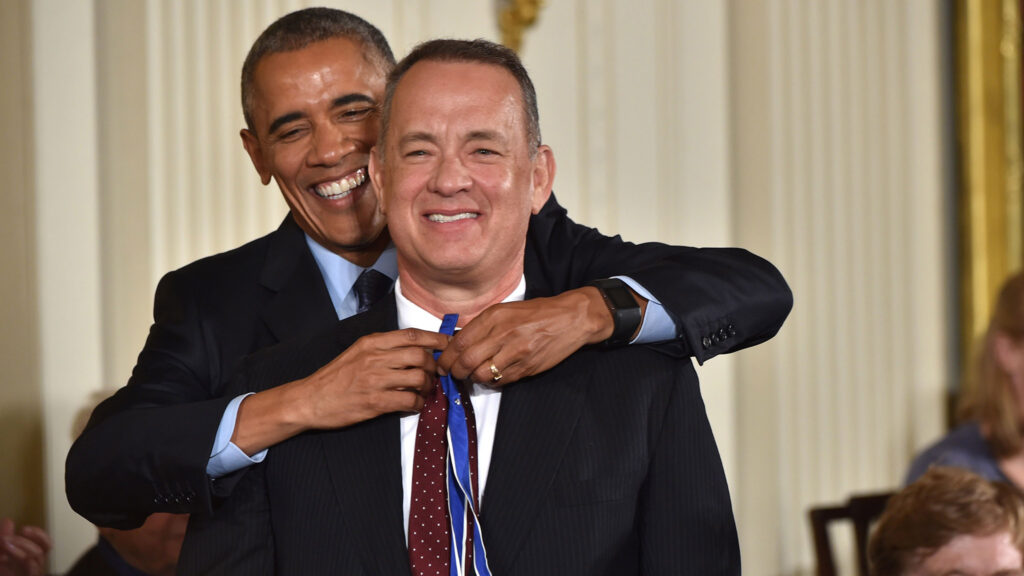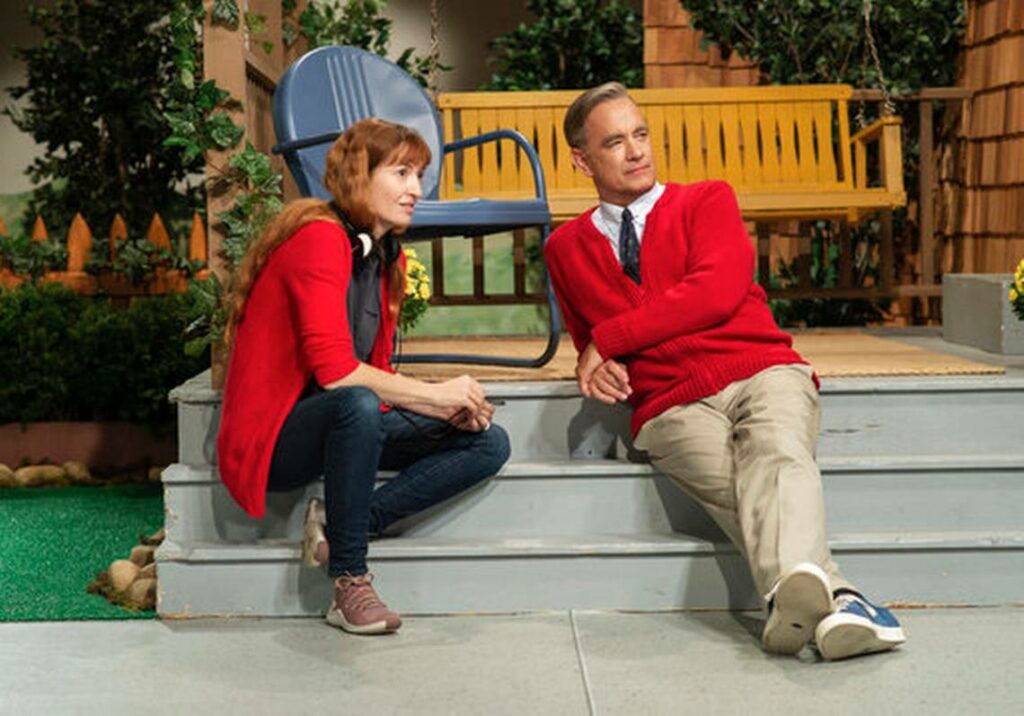Credit: bestfunforall
What exactly does it mean to be an “Everyman?” In literature, the “everyman” is an ordinary character that the audience is supposed to easily identify with despite the character’s extraordinary circumstances.
With that baseline definition, it’s easy to see why people everywhere call Tom Hanks an everyman. Those are the types of characters he seems to be drawn to. Consider Forrest Gump—a man from fictional Greenbow, Alabama who breaks free from his leg braces running, joins the Army, meets more than one president, runs across the entirety of the United States, and so much more. “Cast Away” pits Hank’s character, Chuck Noland, a systems engineer against surviving on a deserted island after a plane crash for four long, isolated years.

Credit: Hollywood Reporter
Both of these characters are quintessential “everyman” characters, as are many of the characters Hanks is drawn to. Tom Hanks is drawn to extraordinary stories based in reality, something New York Times journalist Taffy Brodesser-Akner refers to a “[movies] with optimism.” He doesn’t’ like playing villains who destroy for the hell of it. Hanks likes characters who are complicated in realistic ways, and are motivated by reality. It’s something longtime director Robert Zemeckis says Hanks is great at delivering.
But Hanks’ “everyman” quality extends far past the characters he plays—many attribute that relatability people garner from Hanks to his kindness.
Tom Hanks is well known as one of the nicest men in Hollywood. Hanks gives back to well over two dozen organizations, including the American Foundation for AIDS Research, Lifeline Energy, and UNICEF, on a regular basis. He took part in a telethon for victims of 9/11, serves on the Board of Governors for the National Space Society, and advocates research on alternative fuels. Hanks actively works to use his wealth and resources for good. His efforts even granted him the Presidential Medal of Freedom in 2016, bestowed by former president Barack Obama.

Credit: Financial Times
Kindness, however, cannot be measured in the amount of organizations you donate your time and money to, especially in Hollywood where philanthropy is often seen as yet another symbol of status. Where Hanks’ kindness really shines is in every day settings where he has no obligation to show that kindness, but he does anyway. Like finding a student ID and sharing it on Twitter in hopes of getting it to the girl who lost it. Like helping a bride and her father get to a chapel that was blocked off due to filming.
Where many celebrities might not seize an opportunity to help, Tom Hanks extends his hand. A member of Hanks’ team shared a story where they were driving to the airport and she grew horribly car sick. Though she tried to hide it, Hanks noticed and switched seats with her to alleviate her illness. Brodesser-Akner had an interview with Hanks, but upon waking up the morning of, breathless, had to go to urgent care. The interview was supposed to be later in the day, but Hanks rearranged his schedule so they could meet earlier and she could leave Santa Fe and relieve her altitude sickness sooner than planned.

Credit: Pinterest
Many people, actors or otherwise, might not even think to find these solutions not due to any sense of malice, but simply because the thought did not occur to them. The thought occurred to Hanks, however, and he made the active choice to express goodwill.
But through all that kindness, Tom Hanks sees a fault in his method. In a way, Hanks feels it helps him hide. “I thought the thing to do was to win the moment more than carry through with an idea,” Hanks says on seducing a room. “I’d come to a meeting, and they’d say, ‘I understand you have problems with the rewrite.’ I’d say, ‘No, no, no, hell, we can make it work.’ That’s a cowardice there. And that’s me being willing to seduce whoever that person is on the other side of the room. In which what do I come off as, ‘Oh, he’s got no problem, he can make it work, he’s a good guy to work with,’ et cetera, et cetera.”

Credit: The Kansas City Star
That fear of self-assertion is something many of us struggle with. We want to be easy to work with. We want people to see us as “good.” The way Hanks dances around a situation to “seduce” a room is something that bleeds further into that “everyman” quality.
When it was announced that Tom Hanks would portray Fred Rogers in the upcoming movie, “A Beautiful Day in the Neighborhood,” many felt Hanks with the perfect choice—some even going as far to say Hanks was playing himself, but “slower.” But Hanks portrayal is much more than that. He studied hours of tapes to get Mister Rogers’ cadence and intonation down pat.
“I think it’s an essence thing,” Marielle Heller, director of “A Beautiful Day in the Neighborhood,” says about Hanks performance. “It’s something in the energy and the essence and behind the eyes that you feel the same way looking at him as you feel looking at Mister Rogers, and that was what was so important to me. I never wanted him to be doing an imitation.”
Is kindness that essence? Maybe. It is certainly something Hanks puts forward in every aspect of his life. We see it in the way he treats strangers. We see it in his interviews. We see it in that public persona so many people in Hollywood try so desperately to hone.
At the Kennedy Center Honors reception in 2014, President Obama said this about Tom Hanks. “People have said that Tom is Hollywood’s Everyman; that he’s this generation’s Jimmy Stewart or Gary Cooper. But he’s just Tom Hanks. And that’s enough. That’s more than enough.”




